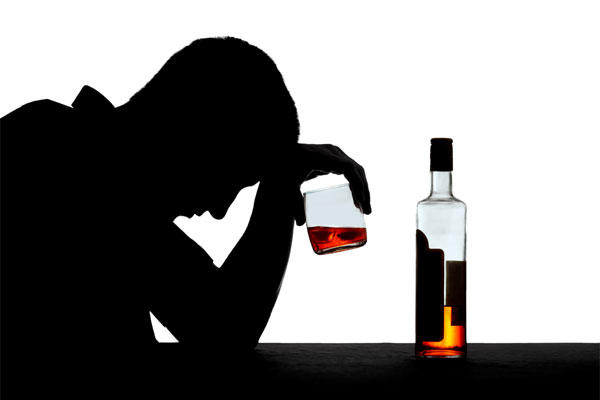When you work with veterans whose wounds involve their bodies, brains, and emotions, it can be hard to know where to start or what is causing the biggest challenge. The term "polytrauma" itself suggests that there is so much happening that providers and patients need to understand how the impact and treatment of one trauma affects another injury.
Katherine Hamilton, an RN TBI/polytrauma case manager at the Veterans Affairs Medical Center in Palo Alto, California, knows one thing that needs to be addressed quickly in polytrauma patients – alcohol use. April is Alcohol Awareness Month and while it is important for many people to assess their alcohol use, it is especially important for people who suffer from traumatic brain injury (TBI) and posttraumatic stress disorder (PTSD).
Hamilton explains that many of the patients at her facility have TBIs that range from mild to severe and most also have PTSD. She adds and that a high percentage of veterans who come in with a TBI also have a drinking history. "They either had a history of drinking before the injury or they are using alcohol as a medication, but the lack of understanding about how alcohol impacts the traumatic injured brain makes things much worse for them," Hamilton explains.
She points out that for a short period of time, alcohol can alleviate some symptoms. For instance, it can help the insomniac to fall asleep, numb the emotional pain for someone who is socially isolating, and even help with pain. All that, however, is short lived. The problems that caused the person to seek relief are actually exacerbated by the alcohol.
Alcohol interrupts sleep and someone who is using it as a sleep aid finds his sleep problems "supersized," Hamilton says. Like sleep, alcohol may sometimes numb pain, but it soon exaggerates and even enhances the pain. "The pain comes back with a vengeance," she says.
Alcohol and the Traumatized Brain
Researchers know that the traumatized brain does not react well to alcohol. In the brain that has been traumatized, the brain cells are easily disregulated and fragile, which is why people with brain injuries need so much rest. When you add a sedative such as alcohol, it slows down brain activity, negatively affecting the brain's natural healing processes, making sleep regulation difficult.
One Man's Story
Hamilton tells the story of one Marine veteran who served in Iraq and Afghanistan and returned with a TBI and PTSD. He suffered chronic pain from his injuries and dealt with life by chain smoking, drinking a lot of caffeinated drinks, riding a motorcycle, getting in arguments with family members and having relationships with women that were centered on drinking.
The patient would stop into Hamilton's office to chat, and she was gentle in leading him to learn how his choices were barriers to his TBI rehabilitation. Hamilton said she knows lecturing veterans will not help, but she does find many responsive to science and research. She explained that nicotine actually heightens pain by activating pain receptors, and that alcohol and caffeine were making his pain and memory symptoms worse. Soon after her talk with him, she found out that he stopped smoking, quit drinking Red Bull, and sold his motorcycle. He stopped drinking, enrolled in nursing school and completely turned his life around.
Hamilton was thrilled that this patient turned his life around and also knew that his quitting alcohol played a significant role. Of course, this patient dealt with bumps along the way, but eventually turned his life around. He is a great illustration of what quitting alcohol can do for someone suffering TBI or PTSD. For more information on alcohol and PTSD, click here.
Service members, veterans, and their families can always take a free and anonymous alcohol use self-assessment at www.DrinkingIQ.org.
Visit www.MilitaryMentalHealth.org to take a free and anonymous PTSD self-assessment.










